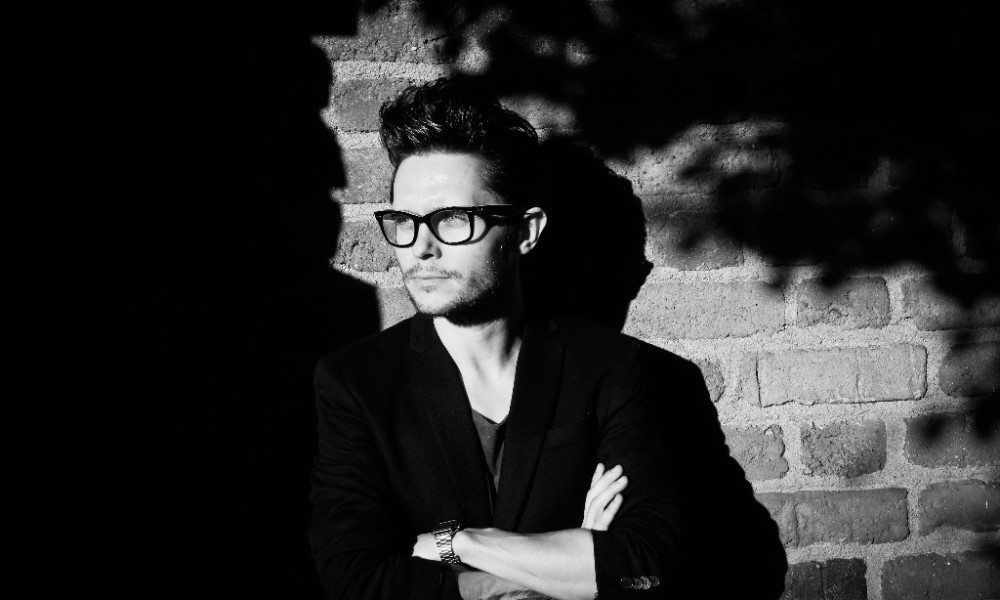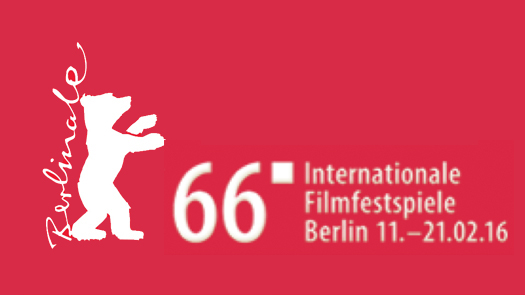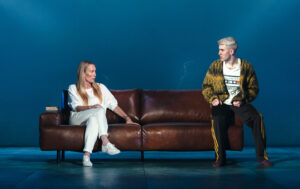Berlin Film Festival 2016: Tomasz Wasilewski on Zjednoczone Stany Miłości (United States of Love)

As with his previous film Plynace Wiezowce (Floating Skyscrapers), the protagonists of writer/director Tomasz Wasilewski’s new film Zjednoczone Stany Miłości (United States of Love) aren’t afforded a lot of happiness in their lives. The muted colours of the cinematography dampen any sense of optimism, but there’s still an obvious yearning for something better amongst the characters. The film is bleak and yet immensely layered, and Wasilewski sat down with us at the 66th Berlin Film Festival to discuss how he created such strong female characters, and how he wanted to avoid any sense of nostalgia for the Poland of his childhood.
How did you come up with these intersecting storylines that combine to form such a clear narrative?
From the beginning I knew that I didn’t want to make a movie with just one lead character, but a few of them. I remember a situation I had in my life that seemed like it was one of those worst days in someone’s life. I was standing, waiting at the crossing lights, waiting for the green light to cross the street and I was thinking about my life, about what I was going through. And I turned my head and saw a woman next to me. I started looking at her. I thought that I had no idea what she might be going through, and this happens very often. We have no access to other people, our lives are crossed with other people’s lives and we often don’t know anything about them. So I created these four characters, and I always knew I wanted to have layers with the time, like with every part time seems to go back. With the second part we discover more about the characters we meet in the first part, and so on. That kind of structure was important to me, and I needed four women who could do that. For me it’s not chapters, but there are three lives, with a fourth that combines things.
Why was it important to tell the story from a strong female perspective?
I remember this time, 1990, from the perspective of women. I was nine years old when communism collapsed, and my father went to New York for a couple of years to work. All of a sudden we had some opportunities, like the world opened. So my father’s biggest dream was to move to Warsaw, he believed for me and my sister to have a better life and perspective, and so he needed to first go abroad for this to happen. And at the time it was Germany or New York. I stayed at home with my mum and my older sister, and I was surrounded by women, with their friends too. So for years, this was a time of transformation through women’s eyes, and this is what I remembered.
The film takes place as communism was coming to an end in Poland, but it’s not a political film. Was it an obvious choice to avoid any political overtones in the story?
I didn’t want to make a political movie. It’s not my thing, and I wanted to make this movie through my memories. I was nine, and I was too little to remember any political issues. So it was very natural for me to choose this kind of social background and build an atmosphere. I tried to focus on the emotions of the women. And this could all happen nowadays. The emotional side of the movie could take place now, and it could be 100 years ago. But the choices of the people were different in 1990. Poland is an extremely Catholic country, and it’s hugely influential, just like it was to grow up under communism. My parents spent most of their lives under communism and somehow this environment put down roots in them, along with all the Catholic traditions. I built the look of the film and the neighbourhood (in the film) from my memories. When I was 16, for the first time in my life, I met a person from a divorced family. I was almost a grown man, and the environment and the traditions meant that divorce and taking a chance would be so much harder than nowadays. Women were less independent then, they were supporting their man, but even if they had jobs and some independence, the figure of the man was much stronger back then in Poland. These days their choices would be so much easier.
The film has subdued colours, and is almost black and white in parts. Why did you choose to present it in such a way?
I grew up under communism. When we started talking about the colours of the film, we went back to our memories and we understood that we had no colours in our mind from that time. This is how we remembered that time, so we understood that the film had to have an almost non-coloured feel.
Did you get a feeling of nostalgia when it came to recreating the Poland of your childhood for the film?
It was very nice to see those buildings again; I grew up in them, and it’s so nice to see that such buildings are still here in Berlin. In Poland, it’s a part of history, but they coloured them and changed them, pink, yellow, ugly green. Going back there, I didn’t really feel nostalgic. Before this movie, I almost forgot that there was communism. We got used to freedom and better days very quickly. Younger generations don’t know anything about communism. So when making this movie, I went back to that period in Poland and it was very sad that it ever happened. For me, communism and the lack of freedom is one of the worst things that ever happened to this world. It wasn’t nostalgia, but more anger that it ever happened. Poland lost so many years.
You create these characters and send them on their journey. The outlook is hardly upbeat when the journey is over. Are you ever tempted to give your characters more optimism about what might happen when the film comes to an end?
No, I’m sorry, but no. It’s hard to explain, but this is how I see cinema. I do everything, or I try to do everything that I can to touch the audience’s soul. And this is my way of telling a story, it’s not like I’m doing comedies. I feel for drama, and I work with my intuitions. When I start a movie, I just write it. I don’t do a story treatment, I just write and go further and further until I find the characters. For me, broken people with broken souls are the ones I can touch the most. I try to reach the deepest point of their souls and hearts, and this is why I chose these characters. In every movie I do, I leave them without any answer or clear destination. I want the audience to give their own destination to the characters.
Oliver Johnston
Read our review of Zjednoczone Stany Miłości here.
Read more of our reviews and interviews from the festival here.
For further information about Berlin Film Festival 2016 visit here.


























Facebook
Twitter
Instagram
YouTube
RSS